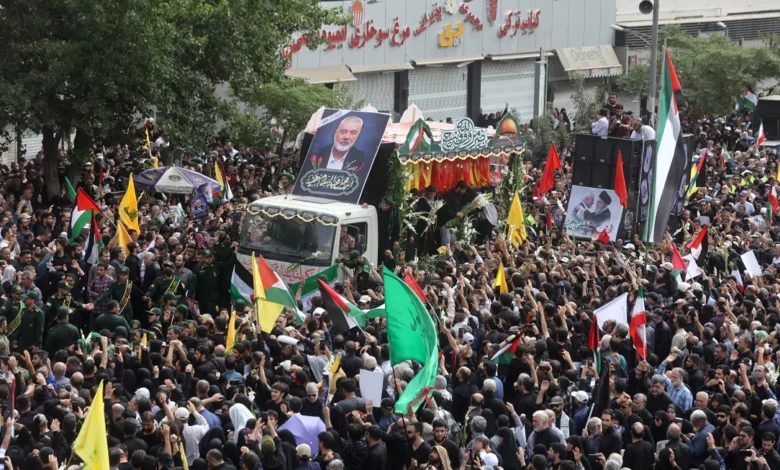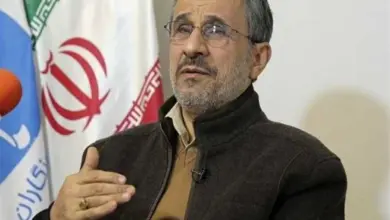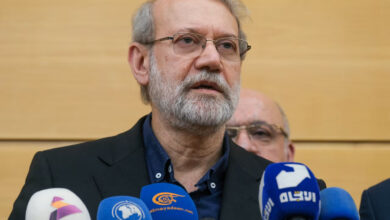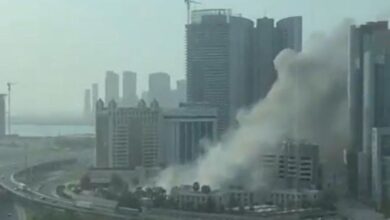
Iran’s pledged retaliation against Israel for the killing of Hamas political leader Ismail Haniyeh in Tehran will take time, according to a spokesperson for the country’s Islamic Revolutionary Guard Corps (IRGC).
“Time is on our side and the waiting period for this response may be prolonged,” Ali Mohammad Naeini was quoted as saying on Tuesday by state media.
In an interview in the Iranian capital on Tuesday, Mohsen Rezaee, former commander-in-chief of the IRGC, told CNN that “the Iranian actions will be very calculated ones.”
The Middle East has been on high alert since last month’s assassination of Haniyeh in Tehran, which came the day after Hezbollah commander Fu’ad Shukr was killed in an airstrike in Beirut.
Israel took responsibility for the killing of Shukr, but has not confirmed or denied its role in Haniyeh’s death. A source familiar with the matter told CNN earlier this month that Haniyeh had been killed using an explosive device that had been covertly hidden in the guest house where he was staying.
Iran and its proxies – Hezbollah in Lebanon and Hamas in Gaza – blamed Israel for both killings and promised to retaliate, spurring weeks of high-wire diplomacy to prevent the breakout of a full-scale regional war.
In his first statement after Haniyeh’s death, Iranian Supreme Leader Ali Khamenei said of Israel, “You have killed our dear guest in our house and now have paved the way for your harsh punishment.” Hezbollah chief also said a response to the strike that killed Shukr was “inevitable.”
But the comments from the IRGC spokesman, three weeks on from the twin killings, may indicate a cooling of Iran’s earlier, more bellicose rhetoric.
Naeini said Iran’s response could differ from previous operations against Israel, saying that Tehran will not take “hasty action.”
“For now, the Zionists must live in instability and Iran’s response may not be a repeat of past operations,” he said. “The response scenarios are not the same. Our commanders have the experience and the art of effectively punishing the enemy and will not take hasty action.”
In April, Iran launched some 300 projectiles at Israel – its first-ever direct attack on the country – after blaming it for a strike on an Iranian diplomatic building in Damascus, Syria, which killed Mohammed Reza Zahedi, a top IRGC commander.
Naeini added that “the Zionist regime (Israel) has accepted the defeat, even American politicians have acknowledged this and have not yet achieved any of their goals,” referring to Israel’s war in Gaza, which has been fought for more than 10 months with the aim of defeating Hamas and returning the hostages it took from Israel on October 7.

Diplomatic efforts to secure a ceasefire between Israel and Hamas ramped up after the twin killings of Shukr and Haniyeh, as Arab and Western officials sought to avoid an all-out war.
Speaking to CNN, Razaee, the former IRGC commander, said “there has to be a ceasefire in Gaza soon.”
“The United States and Israel should not repeat their mistakes. If in the first weeks of the Gaza war the United States had stopped Israel and (Prime Minister Benjamin) Netanyahu the war would not extend. So the main element of the extension of the war are the US and Israel. The more this war extends the more the United States will be damaged,” he said.
Regarding Iran’s response to Israel, Razaee said: “We have investigated the possible repercussions. And we will not let Netanyahu, who is sinking in a swamp, save him himself. The Iranian actions will be very calculated ones.”
After talks resumed last week in Qatar’s capital Doha, US Secretary of State Antony Blinken said Monday that Israel has accepted a proposal to bridge gaps in ceasefire negotiations, and that “the next important step is for Hamas to say yes” to the same terms ahead of further negotiations expected this week.
There have been some indications that Iran may abandon plans to attack Israel if a ceasefire deal is reached, but the country’s mission to the UN said 10 days ago that Tehran’s retaliation is “totally unrelated to the Gaza ceasefire.”
Some officials have suggested that Tehran is dragging its feet, fearing that its response could trigger a wider war. One diplomat said he believed Hezbollah and Iran had “trapped themselves” in their own vows of reprisals.
CNN’s Tamara Qiblawi contributed reporting.




